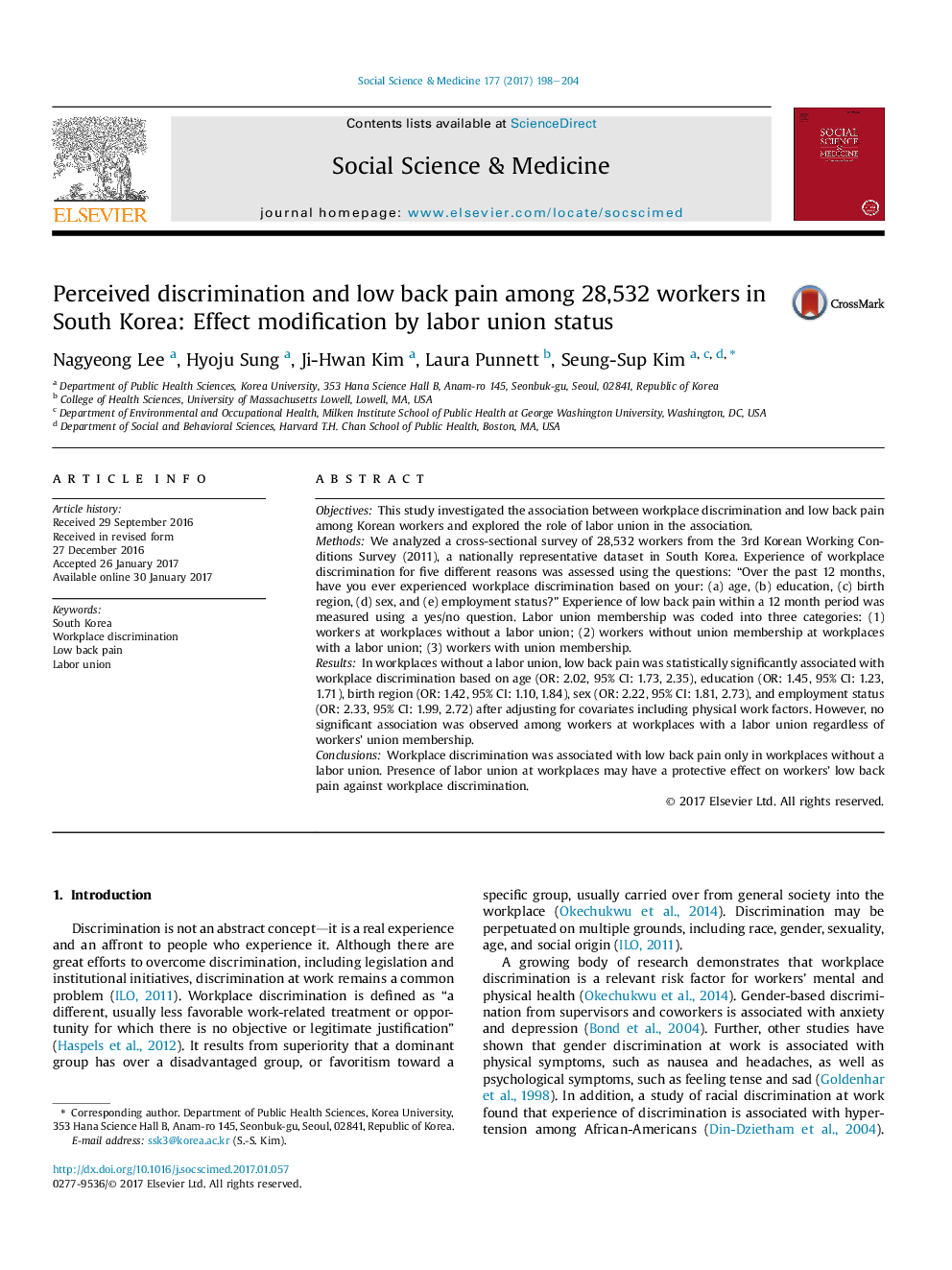| Article ID | Journal | Published Year | Pages | File Type |
|---|---|---|---|---|
| 5046726 | Social Science & Medicine | 2017 | 7 Pages |
â¢A nationally representative dataset of workers in South Korea was analyzed.â¢Experience of workplace discrimination was associated with low back pain.â¢No significant association was observed among workers at workplaces with labor union.â¢Labor union may have a protective effect on workers' health against discrimination.
ObjectivesThis study investigated the association between workplace discrimination and low back pain among Korean workers and explored the role of labor union in the association.MethodsWe analyzed a cross-sectional survey of 28,532 workers from the 3rd Korean Working Conditions Survey (2011), a nationally representative dataset in South Korea. Experience of workplace discrimination for five different reasons was assessed using the questions: “Over the past 12 months, have you ever experienced workplace discrimination based on your: (a) age, (b) education, (c) birth region, (d) sex, and (e) employment status?” Experience of low back pain within a 12 month period was measured using a yes/no question. Labor union membership was coded into three categories: (1) workers at workplaces without a labor union; (2) workers without union membership at workplaces with a labor union; (3) workers with union membership.ResultsIn workplaces without a labor union, low back pain was statistically significantly associated with workplace discrimination based on age (OR: 2.02, 95% CI: 1.73, 2.35), education (OR: 1.45, 95% CI: 1.23, 1.71), birth region (OR: 1.42, 95% CI: 1.10, 1.84), sex (OR: 2.22, 95% CI: 1.81, 2.73), and employment status (OR: 2.33, 95% CI: 1.99, 2.72) after adjusting for covariates including physical work factors. However, no significant association was observed among workers at workplaces with a labor union regardless of workers' union membership.ConclusionsWorkplace discrimination was associated with low back pain only in workplaces without a labor union. Presence of labor union at workplaces may have a protective effect on workers' low back pain against workplace discrimination.
